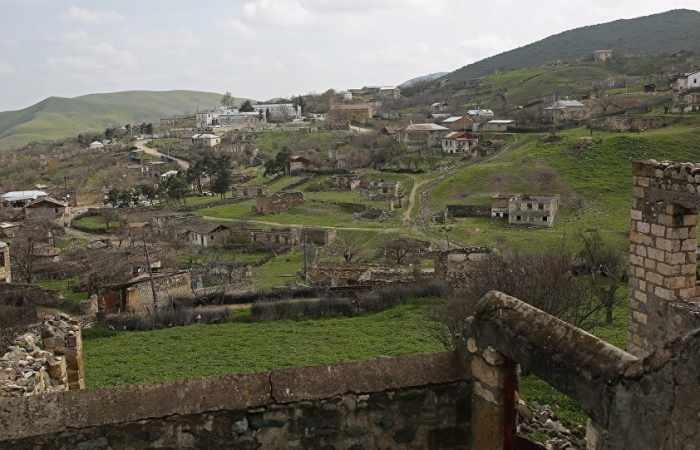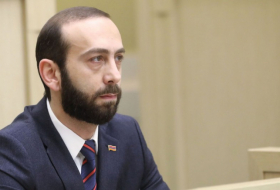By Narmina Marandi
Nowhere in the world is the need for peace more pressing than in the conflict between Azerbaijan and Armenia. That may sound like a sweeping statement, but this is a struggle whose roots stretch back more than 30 years.
In 1988, George Bush Senior was campaigning for the US presidency, Margaret Thatcher had just won her third election victory and the Olympics were being held in Seoul, South Korea. It was a very long time ago.
Outside commentators routinely describe this as a conflict centred on “the disputed enclave of Nagorno-Karabakh". This, however, is misleading, as we shall see in a moment.
First, what is my own involvement and interest in this? I am from Azerbaijan and I grew up with this conflict. We all witnessed a separatist group using the dissolution of the Soviet Union to provoke discord among existing populations who had previously been happy to co-exist.
I am determined to do what I can to increase awareness among the international community of this almost-forgotten struggle, one which, I believe, has implications far beyond the borders of my native country.
Since the fighting began in earnest in the early Nineties, the forced movement of people has seen over 800,000 Azeri refugees flee the conflict zone. Civilians have been killed and infrastructure destroyed. This has resulted in the greatest humanitarian crisis my country has faced, making one out of 10 citizens a refugee.
So, peace is long overdue and such a peace can come only through negotiations conducted in good faith on both sides.
But this ought not to be read as suggesting equivalence between the two participants. The outside world needs to understand that part of Azerbaijan’s territory has been occupied and its restoration must be the objective of any negotiation.
That may sound inflexible. It should not, once a number of misconceptions have been dealt with.
Let’s start with the idea that Nagorno-Karabakh is a “disputed enclave”. It, and the seven surrounding regions and various villages occupied by Armenia, are universally recognised as being part of Azerbaijan. This recognition extends, ironically, to Armenia itself.
In the past 30 years, there have been four United Nations resolutions confirming the territorial integrity of Azerbaijan, including Nagorno Karabakh, and demanding the immediate withdrawal of Armenian troops from this region.
Second is the widespread notion that Nagorno-Karabakh hosts powerful movements calling for either its independence or its incorporation into Armenia. But such activists that exist are Armenians brought into these occupied territories and who, in effect, sing from the song-sheets supplied by the authorities in Armenia’s capital, Yerevan.
Stating, as they do, that Nagorno-Karabakh belonged 4,000 years ago to a “greater Armenia” is entirely irrelevant to the present situation. Such an approach applied elsewhere would return Britain to the Roman Empire, or the original 13 American colonies to Britain.
As for incorporation, the awkward fact is that Nagorno-Karabakh has no border with Armenia, which explains why Armenian troops have had to force a corridor across yet more Azerbaijani territory.
Another sad and despicable falsehood is that this is somehow a religious conflict. This is entirely untrue. While Azerbaijan is majority-Muslim and Armenia majority-Christian, Azerbaijan has large Jewish and Christian communities and a long history of peaceful co-existence among people of different faiths.
More shocking still is the lie that the conflict has the potential to turn into a genocide carried out by Muslims against Christians. A less likely candidate than Azerbaijan for such behaviour would be hard to find. It is an open, liberal and cosmopolitan society, progressive and multi-ethnic. To take one example, universal female suffrage was introduced in 1918, ten years before the UK. Throughout its history the capital, Baku, has always been an international city.
What is more, Nagorno-Karabakh is a beautiful area and a cultural heartland of Azerbaijan. But the Armenians have destroyed many monuments and architectural gems to try to erase the physical signs of its Azerbaijani past and to “change history”, and many of these can never be restored.
What are the obstacles to peace, given that a ceasefire followed by negotiations was announced as long ago as May 1994? The talks went nowhere for more than 20 years and, in 2018, Armenia’s new Prime Minister Nikol Pashinyan began pursuing a consistently hard line on the conflict and the peace process went backwards.
A second obstacle has been constant interference by neighbouring countries in the region, including, on occasion, outright support for Armenia. Objective military experts would agree that Azerbaijan’s armed forces are greatly superior to those of Armenia in terms of both troops and equipment, and it could have long ago reclaimed its territories were it not for outside involvement.
Then there is the extensive Armenian diaspora, not least in the United States, many of whose members are loud in their support for the fake history promoted by Yerevan.
Finally, there has been what can be described only as a drifting off of attention and interest by the world powers that are officially committed to resolving the conflict.
Peace is long overdue, and depends on three things. One is a much wider public awareness outside the region of this tragic and seemingly endless struggle and of the facts of the case. The second is re-engagement by the international community, coupled with a determination to achieve a solution. The third is the recognition that the key to peace is the restoration of Azerbaijan’s territorial integrity.
To anyone who doubts that this faraway conflict has anything much to do with them, I would say that the need to respect international law and international frontiers is universal. If the world community allows 20 per cent of my country to be illegally occupied, then the question has to be – which country is next?
Read the original article on the Telegraph.
More about: Azerbaijan Armenia
















































